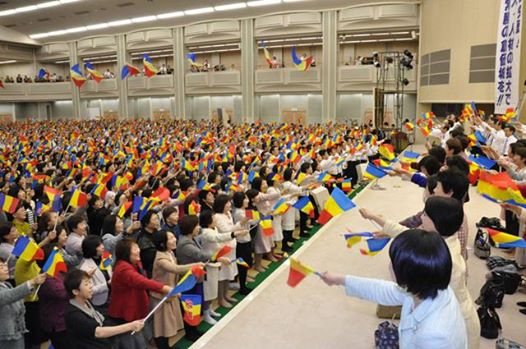Kōmeitō and Sōka Gakkai’s Transforming Relationship: How Changes in Politics and Religion Affect Japan Today
 Going by statistical measures, Japan is reportedly one of the least religious countries in the world. It is thus striking to observe the seemingly disproportionate impact of religious organizations on Japanese elections, legislation, and policymaking. The most powerful of these groups is Sōka Gakkai, a Buddhism-based lay association whose millions of adherents treat electioneering on behalf of its affiliated political party Kōmeitō (Clean Government Party) as a component of their religious practice. Since its founding in 1964, and particularly since it partnered with the Liberal Democratic Party (LDP) in 1999 in the governing coalition, Kōmeitō has exerted a decisive political influence. And, while the party’s representatives consistently promote Kōmeitō as a brake on LDP efforts toward remilitarizing Japan and revising the 1947 Constitution’s peace clause (Article 9), Kōmeitō has reversed its stance on security issues – a move away from its founding pacifism that has alienated some of its Gakkai supporters.
Going by statistical measures, Japan is reportedly one of the least religious countries in the world. It is thus striking to observe the seemingly disproportionate impact of religious organizations on Japanese elections, legislation, and policymaking. The most powerful of these groups is Sōka Gakkai, a Buddhism-based lay association whose millions of adherents treat electioneering on behalf of its affiliated political party Kōmeitō (Clean Government Party) as a component of their religious practice. Since its founding in 1964, and particularly since it partnered with the Liberal Democratic Party (LDP) in 1999 in the governing coalition, Kōmeitō has exerted a decisive political influence. And, while the party’s representatives consistently promote Kōmeitō as a brake on LDP efforts toward remilitarizing Japan and revising the 1947 Constitution’s peace clause (Article 9), Kōmeitō has reversed its stance on security issues – a move away from its founding pacifism that has alienated some of its Gakkai supporters.
This panel brings together researchers who work from within and outside Kōmeitō and Sōka Gakkai. They will suggest reasons why Sōka Gakkai grew into a political powerhouse; how the party and religion interact in the present; what insights drawn from elections data, archival sources, and ethnographic engagement tell us about where Sōka Gakkai and Kōmeitō may be headed in the near future; and how changes now unfolding within Japan’s politics/religion relations may affect constitutional amendment efforts.
Speakers:
Asayama Taichi, Ritsumeikan University
Axel Klein, University Duisburg-Essen
Levi McLaughlin, North Carolina State University